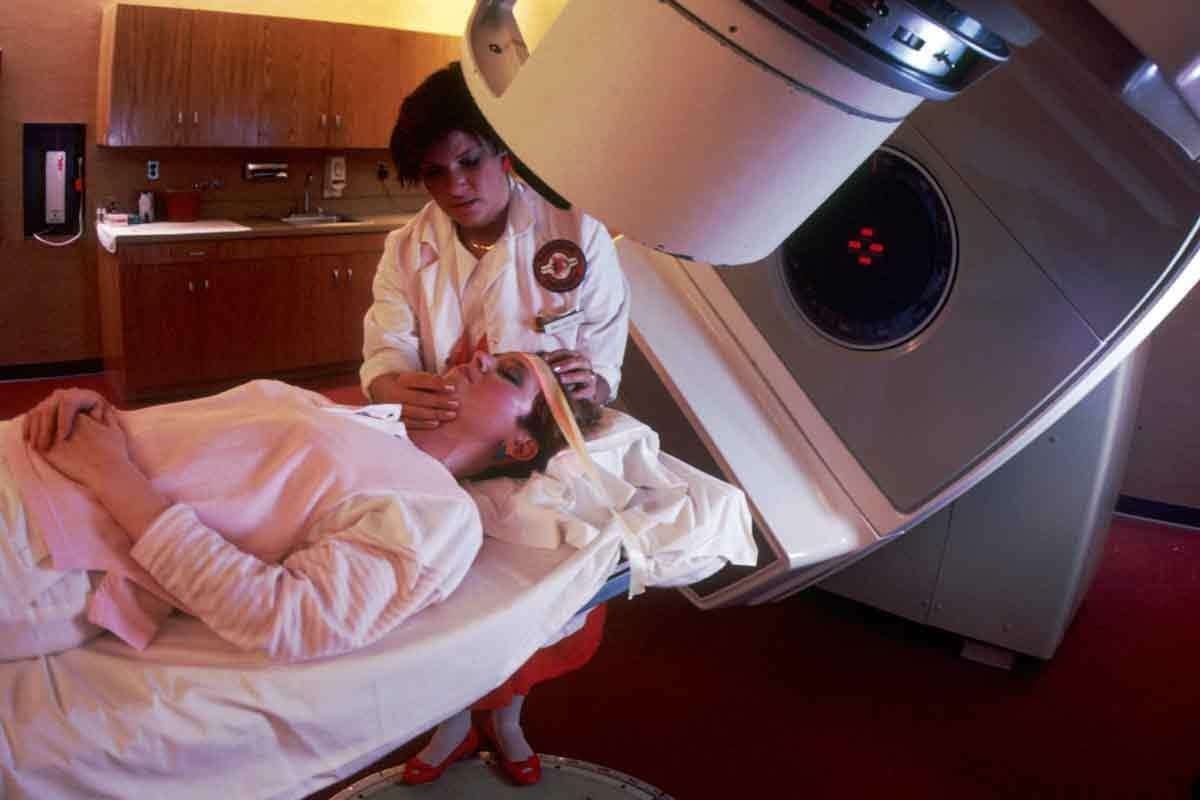Last Updated on November 27, 2025 by Bilal Hasdemir

At Liv Hospital, we focus on giving our patients the latest info on cancer prevention. We’ve seen a lot of interest in green tea and its possible role in fighting cancer. Green tea is packed with powerful compounds called polyphenols, like EGCG. These have been shown to fight cancer in lab and animal studies.
We dive into the latest research on green tea and its cancer-fighting abilities. We’re interested in how green tea’s active parts work in the body. This could help lower cancer risk.
Key Takeaways
- Green tea contains bioactive compounds that may help prevent cancer.
- EGCG, a polyphenol found in green tea, has shown anticancer properties.
- Research is ongoing to understand the role of green tea in cancer prevention.
- Liv Hospital is dedicated to providing complete care and info on cancer prevention.
- Our team of experts stays current with the latest research for the best outcomes.
The Science Behind Green Tea and Cancer Prevention
Green tea has been used in traditional medicine for centuries. Recent studies have found it may help prevent cancer. Its long history in Asian health practices has sparked new scientific interest.
Historical Use of Green Tea in Medicine
Green tea has been a key part of traditional Chinese medicine for ages. It was prized for its health benefits. It was used to aid digestion and boost mental focus. This history has led to modern research into its health benefits.
Modern Research Interest in Cancer Prevention
In recent years, scientists have become more interested in green tea’s cancer-fighting abilities. They are studying the compounds in green tea, like catechins, which may help prevent cancer. They aim to understand how these compounds work to stop cancer from growing.
| Aspect | Historical Use | Modern Research |
|---|---|---|
| Primary Focus | General health and wellness | Cancer prevention |
| Key Components | Various bioactive compounds | Catechins, particular EGCG |
| Method of Consumption | Traditional tea brewing | Tea, extracts, and supplements |
Powerful Compounds in Green Tea
Green tea’s health benefits come from its high levels of polyphenols and catechins. These compounds are found in green tea and have strong anticancer properties.
Polyphenols and Catechins Overview
Polyphenols are known for their antioxidant powers. In green tea, catechins make up 30-40% of its dry weight. Epigallocatechin gallate (EGCG) is the most studied catechin for its health benefits.
EGCG: The Primary Anticancer Component
EGCG is the most active catechin in green tea. It stops cancer cells from growing and causes them to die. Research shows EGCG affects cancer development and growth.
Other Beneficial Bioactive Substances
Green tea also has flavonoids and phenolic acids. These add to its antioxidant power and may help fight cancer. The mix of these compounds boosts green tea’s health benefits.
It’s important to understand how these compounds work together. More research is needed to fully see how green tea can prevent cancer.
How Green Tea Fights Cancer at the Cellular Level
Green tea may help prevent cancer by affecting how cells work. Studies show its bioactive compounds, like EGCG, play a big role. They influence cell processes that help fight cancer.
Antioxidant Protection Against DNA Damage
Green tea’s antioxidants are key in fighting cancer. The catechins in green tea fight free radicals. These unstable molecules can damage DNA and cause cancer.
By protecting DNA, green tea’s antioxidants keep cells healthy. This reduces the chance of cancerous mutations.
Antioxidant activity is vital in stopping cancer from starting. Green tea’s free radical-fighting abilities make it a strong ally in cancer prevention.
Anti-inflammatory Pathways
Chronic inflammation can lead to cancer. Green tea can help by controlling anti-inflammatory pathways. Its polyphenols block pro-inflammatory enzymes and cytokines.
“The anti-inflammatory effects of green tea catechins may play a significant role in cancer prevention by reducing chronic inflammation.”
Inhibition of Cancer Cell Proliferation
Green tea’s compounds can stop cancer cells from growing. They block signals that tell cells to divide. This antiproliferative effect is key in stopping cancer from spreading.
Promotion of Cancer Cell Apoptosis
Apoptosis is a natural way to get rid of damaged cells. Green tea helps cancer cells die off. This stops harmful cells from building up and forming tumors.
Understanding how green tea works at the cellular level is important. It shows its role in cancer prevention. More research is needed, but green tea looks promising in a cancer prevention plan.
Laboratory and Animal Studies on Green Tea Cancer Prevention
Green tea has shown promise in fighting cancer in lab and animal studies. These studies help us understand how green tea might prevent cancer.
Test Tube (In Vitro) Research Findings
Studies in test tubes have found green tea extracts, like EGCG, can stop cancer cells from growing. They also cause cancer cells to die. These findings show how green tea works at a molecular level, including its antioxidant effects.
EGCG affects important pathways in cells, like cell growth and death. This makes green tea a possible tool in preventing cancer.
Animal Model Results
Animal studies have also shown green tea’s benefits. In animal models of cancer, green tea extracts have lowered tumor rates and sizes. For example, mice studies have shown green tea can fight prostate, breast, and colon cancers.
These studies reveal how green tea works, like its anti-inflammatory effects. They also show it boosts the body’s defenses against damage.
Limitations of Pre-clinical Evidence
While lab and animal studies are encouraging, they have their limits. The way green tea is absorbed and processed in animals is different from humans. This makes it hard to apply these findings to people.
Also, the doses used in these studies are often too high for humans. This makes it hard to use these results for human health. So, while these studies are useful, more research, like human trials, is needed to confirm them.
Epidemiological Evidence: Green Tea Cancer Risk in Different Populations
Green tea’s role in fighting cancer has been studied in many groups. The results show different effects in various populations. We look at the evidence to see how green tea might affect cancer risk.
Asian Population Studies
In Asia, where green tea is very popular, studies have mixed findings. Some studies suggest it might protect against stomach and colon cancer. But others found no clear link.
- A study in Japan showed that drinking a lot of green tea could lower stomach cancer risk.
- Research in China hinted that green tea might help against esophageal cancer.
Western Population Research
In the West, where green tea is less common, studies have also shown mixed results. Some studies hint at a possible benefit in lowering cancer risk. But others found no clear effect.
- A study in the United States found that green tea extract might help against prostate cancer.
- A European study saw a weak link between green tea and lower breast cancer risk.
Challenges in Interpreting Population Data
It’s hard to understand the link between green tea and cancer risk because of many factors. Green tea is seen as a strong fighter against, but more research is needed. This will help us understand its benefits better.
In conclusion, while some studies suggest green tea might protect against certain cancers, the evidence is not strong enough. More research is needed to fully understand how green tea affects cancer risk in different groups.
Clinical Trials: Testing Green Tea’s Cancer-Fighting Ability
Researchers have done many clinical trials to see if green tea fights cancer. These studies help figure out if green tea works in people like it does in lab tests.
Design of Human Intervention Studies
Studies on green tea and cancer use people who drink green tea or a fake drink. The design of these studies can vary. Some studies look at people at risk for cancer, while others study those already with cancer.
These trials last from a few months to years. They check if green tea lowers cancer risk or slows cancer growth.
Key Findings from Major Clinical Trials
Many big studies have shared their results on green tea and cancer. Some found that drinking a lot of green tea might lower the risk of breast and prostate cancer.
- A study in the Journal of Clinical Oncology found green tea catechins help men with high-grade prostate cancer.
- Another study showed green tea might help people with colorectal cancer live longer.
Understanding Inconsistent Results
But not all studies agree on green tea’s benefits. The inconsistencies come from many factors. These include how the study was done, the type and amount of green tea, and who was in the study.
For example, studies with green tea extracts might show different results than those with brewed tea. This is because the body absorbs different amounts of active compounds.
Gaps in Current Research
Even with the studies we have, there’s more to learn about green tea and cancer. Future research should make sure green tea is given in the same way in all studies. It should also include a variety of people to make the results more reliable.
- We need to study green tea’s long-term effects.
- It’s also important to look at how green tea interacts with other foods or medicines.
By filling these gaps, we can better understand if green tea is a good part of a plan to prevent cancer.
Green Tea and Specific Cancer Types
Research shows green tea might help prevent certain cancers. It has been linked to lower risks of breast, colorectal, lung, and prostate cancer. We’ll look at the evidence for each type and what it means.
Breast Cancer Evidence
Studies have looked into green tea’s effect on breast cancer risk. Some say it might protect against it, mainly in Asian women. A study found that drinking a lot of green tea could lower breast cancer risk in Asian women.
Colorectal Cancer Research
Green tea’s link to colorectal cancer has been studied too. Some research suggests it might slow cancer cell growth. But, we need more studies to be sure.
Lung Cancer Studies
Lung cancer research on green tea is ongoing. Some studies hint at a protective effect. But, the results are not clear yet, as many factors can influence them.
Prostate Cancer Findings
Green tea’s impact on prostate cancer is mixed. Some studies suggest it might lower the risk, while others don’t see a difference. We need more research to understand this better.
Factors That Influence Green Tea’s Cancer-Preventive Effects
Green tea’s ability to prevent cancer is influenced by several factors. It has been studied a lot for its cancer-fighting properties. But, different things can affect how well it works. We’ll look at these factors to understand how to use green tea best.
Optimal Dosage and Consumption Patterns
The right amount of green tea for cancer prevention is not set in stone. But, studies say 2-3 cups a day might help. “The catechins in green tea, like EGCG, are key to its cancer-fighting power,” a Journal of Nutrition study found. How often and when you drink it might also matter.
Key considerations for optimal dosage include:
- The amount of catechins, like EGCG, in the tea
- The frequency and duration of green tea consumption
- Individual variability in metabolism and response to green tea
Preparation Methods and Tea Quality
How you make green tea and its quality can change its benefits. The brewing method, tea leaf quality, and steeping time all affect the catechin content. “The right brewing techniques can make green tea’s active compounds more available,” a Journal of Agricultural and Food Chemistry study found.
Genetic Factors and Individual Variation
Genetics can change how people react to green tea’s compounds. Differences in genes can affect how well green tea works against cancer. Scientists are studying these genetic interactions.
Key genetic factors include:
- Variations in the COMT gene, which affects catechin metabolism
- Individual differences in the expression of genes related to cancer cell growth and apoptosis
Dietary and Lifestyle Interactions
What you eat and how you live can affect green tea’s benefits. Eating a balanced diet and staying active can boost green tea’s effects. “A healthy lifestyle with green tea may lower cancer risk,” a Nutrients review says.
Green Tea Supplements vs. Traditional Tea Drinking
Green tea’s health benefits, like fighting cancer, have sparked interest. The debate between supplements and drinking traditional tea is growing. We’ll look at the differences to help you choose wisely.
Bioavailability Comparisons
Green tea’s active compounds, like EGCG, have different bioavailability in supplements and tea. Supplements offer a high dose, but food and other nutrients can affect how well they’re absorbed.
Drinking traditional green tea, on the other hand, offers a more balanced absorption. This might help keep the cancer-fighting effects going longer.
Safety Profiles of Different Forms
When it comes to safety, supplements and traditional tea have different risks. High doses of EGCG in supplements can harm the liver. But, drinking green tea in moderation is usually safe.
It’s important to remember that both can affect how well other medicines work or worsen health issues. Always talk to a doctor before starting green tea, whether it’s supplements or tea.
Recommended Consumption Approaches
For the best cancer-fighting benefits, a balanced approach is best. Drinking green tea regularly as part of a healthy diet is safe and effective.
If you prefer supplements, choose ones with clear EGCG content labels. Follow the recommended dose and watch how your body reacts. This way, you can enjoy the benefits while staying safe.
Potential Risks and Side Effects of Green Tea
Green tea is usually safe, but too much can cause problems. It’s important to know the risks when thinking about its role in fighting cancer.
Caffeine-Related Concerns
Green tea has caffeine, but less than coffee. Drinking too much can make you feel jittery, anxious, or keep you awake. People who are sensitive to caffeine should be careful and might want to choose decaf.
- Jitteriness and anxiety
- Insomnia and sleep disturbances
- Increased heart rate and blood pressure
Medication Interactions
Green tea can affect how some medicines work. It might mess with blood thinners and some antibiotics. People taking medicine should talk to their doctor before drinking more green tea.
Liver Issues with Concentrated Extracts
Too much green tea extract can harm the liver. This risk is higher with concentrated supplements than with brewed tea. Some green tea extract products have been warned about by health agencies.
Who Should Exercise Caution
Some people should be careful with green tea:
- Pregnant or breastfeeding women, due to caffeine and catechin content
- Individuals with anxiety or caffeine sensitivity
- Those taking certain medications, such as blood thinners
- People with liver conditions or concerns
It’s a good idea to talk to a doctor for these groups.
In summary, green tea might help prevent cancer, but knowing its side effects is important. Drinking it in moderation and knowing what you’re doing is the best way to enjoy its benefits.
Can Green Tea Prevent Cancer? The Current Scientific Consensus
Green tea’s role in fighting cancer is a topic of ongoing debate. We need to look at the latest research to understand its benefits. This includes both the good and the bad of current studies.
Strengths of Existing Evidence
Many studies have looked into green tea and cancer. The evidence shows green tea might help protect against some cancers. Catechins, like EGCG, are thought to be key in green tea’s cancer-fighting abilities.
Reviews of studies, lab tests, and clinical trials show promising results. For example, drinking green tea regularly might lower the risk of breast, prostate, and colon cancers.
| Cancer Type | Green Tea Consumption Effect | Study Type |
|---|---|---|
| Breast Cancer | Reduced Risk | Epidemiological |
| Prostate Cancer | Reduced Risk | Clinical Trial |
| Colorectal Cancer | Reduced Risk | Laboratory Study |
Limitations and Controversies
Despite promising findings, there are limitations and debates. Study designs, how green tea is made, and genetic differences can impact results. Some studies have shown mixed results, calling for more research.
There’s also debate on how much green tea to drink and how to make it for cancer prevention. More research is needed to find the best way to use green tea’s benefits.
Expert Opinions and Medical Recommendations
Health experts suggest adding green tea to a balanced diet for cancer prevention. But, it’s important to talk to a doctor before changing your diet or adding supplements.
As we learn more about green tea, it’s clear we need a multi-faceted approach to prevent cancer. Green tea, along with other lifestyle changes and medical treatments, might help lower cancer risk.
Conclusion: Green Tea as Part of a Cancer Prevention Strategy
Green tea and cancer prevention have a complex relationship. While the evidence is not yet conclusive, green tea can be part of a broader strategy. This includes other lifestyle and dietary recommendations.
Green tea is rich in polyphenols and catechins, like EGCG. These have been shown to have anticancer properties. Studies suggest green tea can protect against DNA damage and stop cancer cell growth.
To include green tea in a cancer prevention strategy, it’s not just about drinking tea. A balanced diet and healthy lifestyle are also key. As research continues, green tea’s benefits for cancer prevention are becoming clearer.
If you’re interested in using green tea for cancer prevention, talk to a healthcare professional. They can help you understand the best dosage and preparation methods. This way, we can use green tea to help lower cancer risk.
FAQ
Does green tea really help prevent cancer?
Green tea has compounds that might prevent cancer. But, the proof is not solid yet. Studies show promise, mainly in some groups and cancers.
What are the main anticancer components in green tea?
Green tea’s main fighters are polyphenols, like catechins. EGCG is the most important. These help protect cells and fight cancer.
How does green tea fight cancer at the cellular level?
Green tea works in several ways. It protects cells, stops inflammation, and kills cancer cells. These actions help keep cells healthy and prevent cancer.
Is there a difference between green tea supplements and drinking green tea?
Yes, supplements and tea are different. Supplements have more of some compounds but lack others. They might not be as safe or effective as tea.
Are there any potentially harmful effects of green tea?
While green tea is safe, too much can be bad. It can cause caffeine issues, interact with meds, and harm the liver. Some people should be careful.
Can green tea prevent specific types of cancer?
Research suggests green tea might help prevent some cancers. These include breast, colon, lung, and prostate cancer. But, more studies are needed.
How should I consume green tea for cancer prevention?
Drink green tea in moderation as part of a healthy diet. The best amount and way to make it is not clear. But, brewed tea is usually safe and might help.
Can green tea replace conventional cancer treatments?
No, don’t rely only on green tea for cancer treatment. It might help prevent cancer, but it’s not a substitute for medical treatment. Always talk to a doctor.
Is green tea suitable for everyone, including those with certain medical conditions?
People with certain health issues or taking certain meds should talk to their doctor before drinking green tea. Pregnant or breastfeeding women should also be careful.
What is the current scientific consensus on green tea and cancer prevention?
Scientists think green tea might help prevent cancer, but the evidence is not strong enough. More research is needed to understand its benefits and limits.
- American Institute for Cancer Research. (n.d.). Plant compounds in cancer treatment and prevention. Retrieved from https://www.aicr.org/resources/blog/plant-compounds-in-cancer-treatment-and-prevention/
- Bioengineer.org. (n.d.). Survey reveals interest in alternative cancer prevention methods. Retrieved from https://bioengineer.org/survey-reveals-interest-in-alternative-cancer-prevention-methods/
- Cancer Research UK. (n.d.). Green tea. Retrieved from https://www.cancerresearchuk.org/about-cancer/treatment/complementary-alternative-therapies/individual-therapies/green-tea
- National Center for Biotechnology Information. (n.d.). Article PMC11853328. Retrieved from https://pmc.ncbi.nlm.nih.gov/articles/PMC11853328/
- Sarma, P. S. B. N., Sridhar, T. M. H., Devi, R. S. H. S., & Devi, S. B. H. (2010). The role of green tea polyphenols in cancer prevention. Journal of Carcinogenesis, 9(1). https://pmc.ncbi.nlm.nih.gov/articles/PMC2829848/








